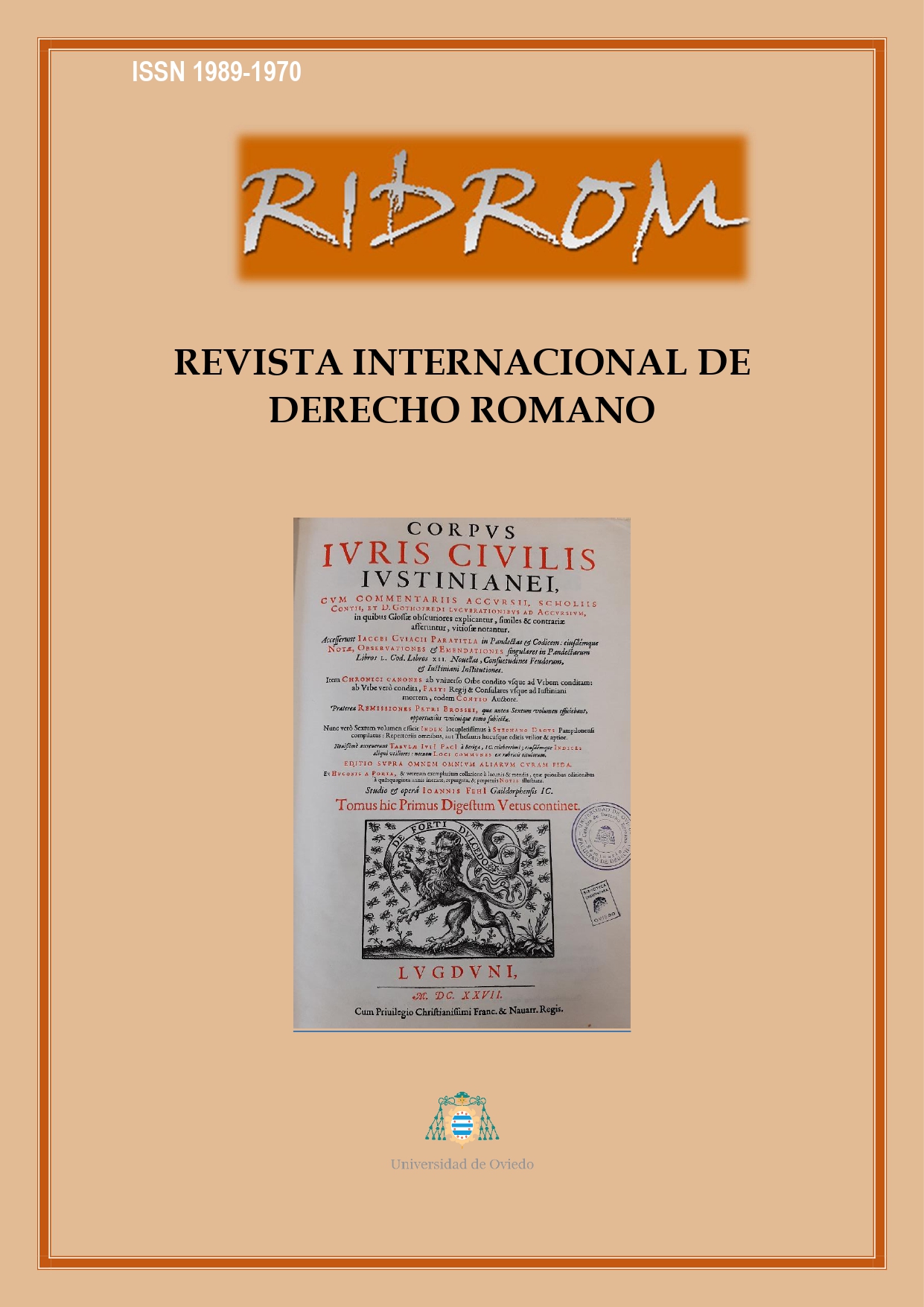Abstract
As the changes in Roman Law introducted since the latter Republic came to a stabilization, the tardoclassical jurists made their tries on the construction of sistematic, general-reaching cathegories. The lack of a specific terminology apt to cope with the peculiarities of the cognitiones extraordinariae added a remarkable degree of difficulty to their attempts, as exemplified by D.45.1.5 pr. Pomp. 26 ad Sab. Looking into the cathegory of the stipulationes communes, the first example of them given in the text (that of the satisdatio rem pupilli salvam fore) must be interpreted from the point of view of the increasing imperial meddling in guardianship matters. In the ordo iudiciorum privatorum, it was not impossible the requirement of this cautio by the iudex as cautio iudicialis. This could have come to pass in the improbable event of an action against the guardian on the administration of the wards patrimony, in which the necessity of the providing by the guardian of the still not given cautio would only manifest itself during the apud iudicem phase. It could also happen when the sentence of the iudex would ipso facto bring with it the appointment as a guardian of any of the parties. This case is considered specifically by Roman jurists in connection with causae liberales. Notwithstanding, for this second possibility it seems highly improbable that the requirement of this satisdatio would have been considered as a function of the iudex before the regulation of guardianship matters as an extraordinaria cognitio. It is only logical to suppose that the consideration of this cautio as stipulatio communis in D.45.1.5 pr. was due to the asumption by the iudex of functions otherwise exclussive of the president of the in iure phase, in the frame of the regulation of guardianship matters as extraordinaria cognitio..Downloads
Download data is not yet available.

